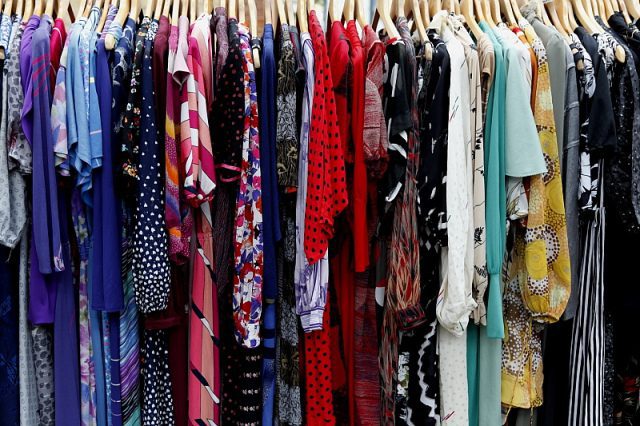Microaggression, defended by management

One of these two things is true (and I don’t know which)
Either, the customer service at White House Black Market is just awful, or the customer service is awful for women who wear hijab.
Either way, their clothes cannot be nice enough to lure me in there.
Microaggression is when a person consciously or subconsciously makes negative assumptions or uses language that is insulting about another person. People can do or say things that insult others without being aware they are doing it.
Examples include:
Assuming a person is of lower rank or somehow up to not good. Examples: A clerk following a customer, based on race, assuming they are planning to shoplift. Assuming a person is an employee — not a customer — based on skin color or clothing. Assuming that the white person is the boss and the darker person is an assistant. (These are things that dark-skinned people deal with all the time. They are followed in stores. They are asked for help from other customers, because they “look like” staff. They are assumed to be lower-rank employees.)
Assuming an Asian and other non-white American is a recent immigrant or somehow still part of the old-country identity (and not wholly American), even if they are many generations removed from immigrants. (This is so common there is a comedy video about it.*)
Using insulting language that is common in our culture — but is insulting to a minority group: Crazy, lame, autistic being used as a description of someone behaving badly. Old anti-ethnic words that are still in common use, like gyp or paddy wagon. Using “That is Christian of you” as a synonym for that is good and “That’s so gay” as a synonym for that is weird or otherwise flamboyant behavior.
Deciding the consequence of personal decisions. Examples include the microaggression at the White House Black Market. It could start out sounding like it is a caring remark, but it turned out not to be. Other examples are people who talk about how “hard it is” or “how brave you are” to (fill in the blank) be religious, have tattoos, be LGBTQ, choose to let your hair be grey…
It is easy to see how mistakes can happen, and someone can hurt someone else’s feeling. The proof of the intention is in the reaction to someone who questions the remark.
Here’s what happened, to Nadia Alawa.
She walked into a clothes store, where she has shopped before. The clerk assumed that she had come in to get cool in the AC, rather than come in to shop.
Clerk: How are you?
Alawa (a Muslim customer, wearing long sleeves and hijab): Fine, how are you?
Clerk, (whose attention at the time was focused on the clothes): No, really how are you?
Alawa: I’m fine, thank you.
Clerk: You must hot dressed like this…I’m hot being in here with the AC dressed this way, so you must have gone in here to get AC because you’re hot in that. (The clerk was wearing shorts and a t-shirt.)
When microaggression crosses the line into aggression
The proof that this is aggression — not unconscious microaggression — comes in the response, when the comment about coming in to get cooled off was questioned. The response from someone who did not mean offense would be something like, “I never thought of it that way… I didn’t mean to offend… I was trying to be understanding/I was just trying to start a conversation/I was curious about your dress and didn’t know how to ask you…”
However, in a later phone call to White House Black Market, “The manager on duty said that Alawa was wrong for “being offended,” and that she had a responsibility to “explain.” source
The comment by the clerk (who was the manager that day) could have been thoughtless and benign. But, in defending the comment, the other manager turned it into aggression.
No one is wrong to make the statement that they are offended. When someone is offended, that offense is either intentional or not. If it was unintentional, saying you are offended can clear the air. It can be a teachable moment, where a person of good will can learn how simple turns of phrase or action can hurt other people’s feelings. But, when someone claims that another is wrong to be offended, it speaks volumes about the level of respect being given to the offended party.
Had a white woman of northern European heritage come into the store wearing with long sleeves, would she have been chatted up about not being a serious shopper? If she said that she was annoyed by the insinuation, would she have been told she was wrong to be offended?
*Here’s an aggressive — and not recommended — way to address microaggression. Here, because humor softens the pain.
If you are interested in my Bystander Intervention classes. Please join my mailing list.